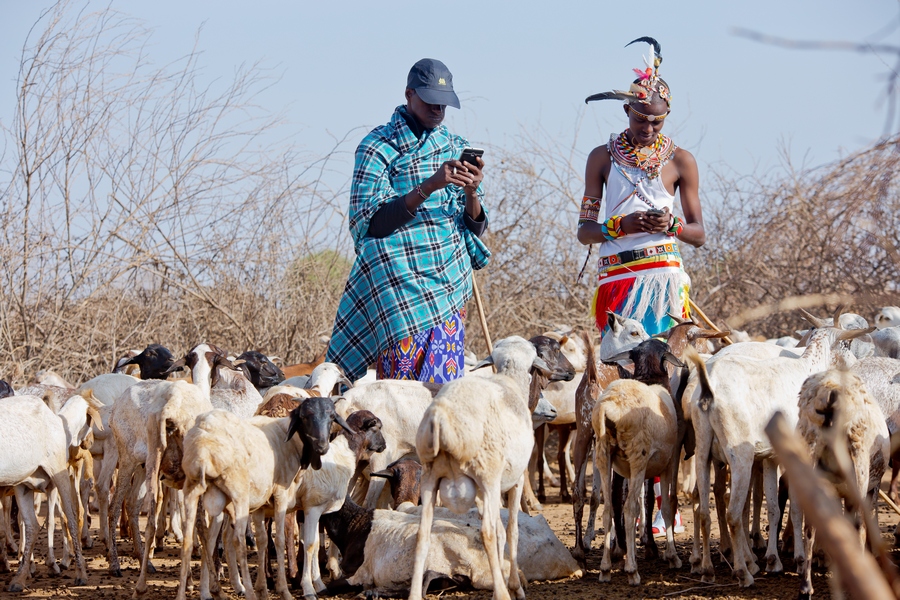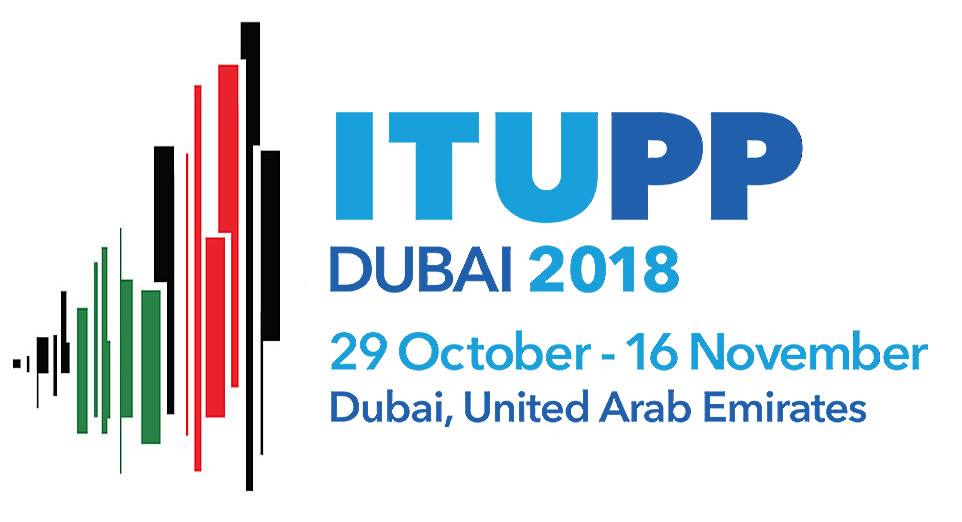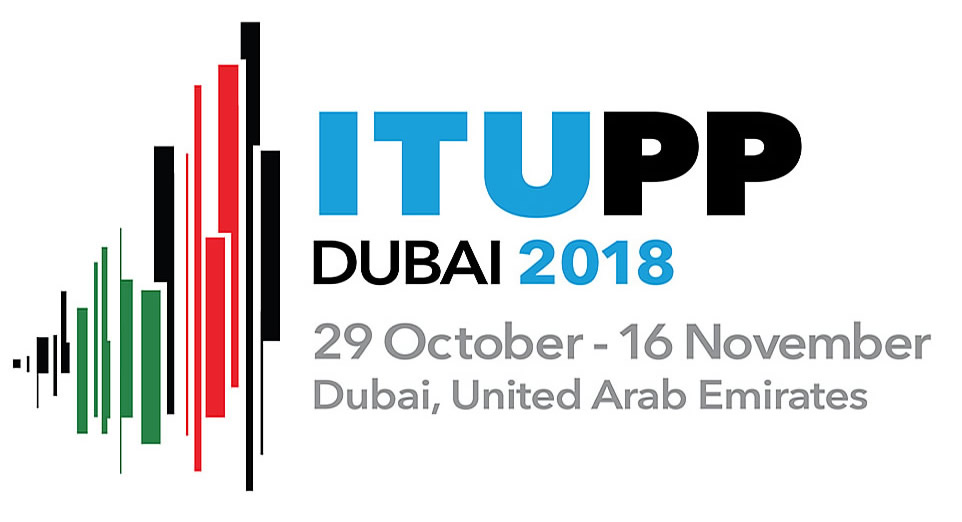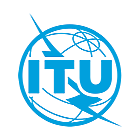This is the version of the backgrounder prepared for the Plenipotentiary 2018 Conference in October/November 2018. For the most recent version of this backgrounder, please see here.
The ITU Development Sector (ITU-D) and its executive arm, the Telecommunication Development Bureau (BDT), work to promote human and socioeconomic development through information and communication technologies (ICTs). Since 1992, ITU-D has contributed to the rapid growth of telecommunication and ICT networks and services, which are helping to expand access to government services, health care, education, agricultural services, financial and banking services, and market information.
 Credit: ©ITU/Trans.Lieu
Credit: ©ITU/Trans.Lieu
ITU-D’s diverse membership includes partners from government as well as regulatory agencies, regional and international organizations, the private sector, non-governmental organizations, and leading IT equipment manufacturers and software developers. The membership of ITU-D has grown more and more diverse, as ITU-D works with non-traditional ICT players. In recent years, ITU-D has also strengthened its collaboration with other United Nations (UN) agencies, in the areas of agriculture, finance, health care, education, women’s empowerment, and youth, just to mention a few. This gives the Sector the resources to make a difference in people’s lives through policy-making, information sharing, and grassroots projects.
The Sector’s development goals were set at the World Telecommunication Development Conference (WTDC-17) in Buenos Aires in October 2017. Sustainable development is at the heart of the work of ITU-D.
BDT continues to build partnerships with a wide range of stakeholders. More than 900 agreements have been signed with a great variety of stakeholders from the public and private sectors, regional and international organizations, UN Agencies, financial institutions, academia, and foundations.
The projects that the BDT has implemented have been making a difference in the lives of people around the world and have offered sustainable and innovative solutions for achieving global development through ICTs.
Building capacity and new skills
ITU-Development offers extensive opportunities for ICT skills development through its ITU Academy initiative. The ITU Academy web-based learning management system enables access to ITU training interventions and resources, whether delivered face-to-face or through distance learning. The ITU Academy aims to strengthen the individual, institutional and organizational capacity of developing countries by making the highest-quality ICT learning and development opportunities available.
In addition, 32 Centres of Excellence, supported by a wide range of government and industry partners, offer continuous education to senior ICT managers in the public and private spheres. These centres serve as regional focal points for professional development, research, and knowledge sharing; they also provide revenue-generating specialist training services to external clients.
Under the umbrella of the ITU Academy, close to 200 training activities have been conducted in the past three and a half years, training more than one thousand professionals annually.
Making it all add up
ITU is recognized as the world’s premier source of impartial and in-depth information on ICTs.
BDT collects around 180 ICT indicators annually for around 200 economies worldwide. These include data on mobile and fixed-network penetration, Internet use, broadband access, pricing of ICT services, household ICT access, access to ICTs by gender, ICT industry revenue and investment, and more. Statistics are collected directly from telecommunication ministries, regulatory authorities and National Statistical Offices, which include household surveys. ITU uses this comprehensive data to track the Information Society.
The ICT Eye website is the world’s largest free-of-charge ICT information resource, collating ICT indicators and statistics, regulatory and policy profiles, national tariff policies, operator information, and contact details for a host of financial, scientific and development organizations.
In addition, a series of comprehensive regional and global reports track and analyse ongoing trends across the ICT industry. The annual publication, Measuring the Information Society, is renowned for its impartiality and analytical breadth, as well as the reliability of its extensive sets of indicators, which cover everything from fixed-line networks to TV penetration and Internet access speeds and pricing.
In addition, the World Telecommunication/ICT Indicators Symposium (WTIS) is the largest gathering of experts and practitioners in the field of information society measurement. Each year, it brings together around 450 delegates, from government ministers and business leaders to UN statistics-gathering organizations, national statisticians, leading academicians and ICT data producers and analysts.
ITU-D plays an important role in guiding countries in their data collection efforts by providing guidelines and definitions to measure the Information Society and track the digital divide. These include the ITU Handbook for the Collection of Administrative Data on Telecommunications/ICT and the ITU Manual for Measuring ICT Access and Use by Households and Individuals.
Developing infrastructure and services
BDT assists developing countries with the management of the radio-frequency spectrum to develop ICT infrastructures and services.
The ITU Interactive Terrestrial Transmission Maps, developed by BDT, are an authoritative ICT data mapping platform to take stock of national backbone connectivity, as well as of other key metrics of the ICT sector. Data collected from more than 400 operators worldwide are already available, and are updated constantly.
BDT has assisted more than 40 countries with the transition from analogue to digital broadcasting, bringing new opportunities to all stakeholders, from manufacturers, to broadcasters and end-users.
Promoting an equitable regulatory environment
The Global Symposium for Regulators (GSR), has become the industry’s flagship regulatory event. GSR promotes information exchange, the sharing of experiences, and interaction with Member States, the private sector, and other stakeholders. GSR attracts over 500 senior representatives from the world’s national regulatory bodies as well as private companies and academia. The outputs include discussion papers and Best Practice Guidelines on topical issues.
ITU-D also offers a portfolio of regulatory resources, including high-quality data, research and analysis, and tools including the ICT Eye, the ICT Regulatory Tracker, and ITU web portals, as well as topical and thematic publications and thematic series on regulatory and market environment issues.
Digital inclusion for people with specific needs
ITU-D’s digital inclusion activities promote ICT accessibility and use for people with specific needs, including persons with disabilities, women and girls, youth and children and indigenous peoples.
The activities include sharing information and raising awareness on policies, legislation, regulations and business practices that promote digital inclusion.
For example, the International Girls in ICT Day campaign is a driving force that encourages and empowers girls and young women to prepare for and take up ICT careers as well as to raise awareness among decision-makers on the need to attract more women to ICT jobs. Other examples include the Girls in ICT Portal, the Connect a School, Connect a Community toolkit, the e-Accessibility toolkit, and publications such as Making Television Accessible and Making Mobile Phones and Services Accessible. The International Labour Organization (ILO) and ITU are leading the Digital Skills for Decent Jobs Campaign as part of the Global Initiative on Decent Jobs for Youth to foster decent and inclusive employment and entrepreneurship opportunities in line with the Sustainable Development Goals. As part of the Initiative, ITU-D has released a toolkit aimed at providing various stakeholders with guidance on how to develop a comprehensive national digital skills strategy.
Saving lives
BDT facilitates emergency responses by deploying emergency telecommunication equipment when disasters strike and preparing countries for disasters, including through the use of new technologies and tools. BDT also increasingly uses Big Data to fight epidemics.
Global, national and regional workshops and trainings have helped to increase awareness, provide guidance and build the capacity of policy-makers and governments in the area of ICTs for disaster management and to strengthen human and institutional capacity. Public-private partnerships and synergies have helped to improve the effectiveness of disaster management.
Harnessing the power of mobile phones: everyday, everywhere
In close collaboration with other UN specialized agencies and programmes, BDT has developed a number of applications and services supporting the deployment of ICT devices and mobile applications to improve people’s lives worldwide.
In collaboration with the World Health Organization (WHO), BDT launched the "Be Healthy Be Mobile" initiative to help fight the growing burden of non-communicable diseases and continues to support countries to develop their national eHealth strategies to better harness ICT for health.
Partnering with UN Women, BDT is leveraging the power of technology to promote women empowerment through ICTs.
With the Food and Agriculture Organization (FAO), BDT produced an e-Agriculture Strategy Guide to assist Member States in adopting digital technology to improve agricultural productivity.
BDT and the United Nations Educational, Scientific and Cultural Organization (UNESCO) are collaborating to foster innovation in the education sector and facilitate the use of mobile technology for learning.
Ensuring that no country is left behind
ICT opportunities have been created to leapfrog development challenges and ensure that the most vulnerable are not left behind. BDT is actively engaged in a special direct aid programme aimed at bringing modern communications to 47 UN-designated Least Developed Countries (LDCs), positively impacting close to 1 billion people.
Embracing innovation in the digital age
Since 2014, the ITU-D Innovation Platform has helped to strengthen ITU members’ capacity to integrate ICT innovation in their national development agendas and to promote a culture of innovation. BDT conducts ICT Centric Innovation Reviews to help develop digital innovation ecosystems, accelerate digital transformation, catalyse ICT entrepreneurship, and enhance ICT sector competitiveness. The BDT is also helping to build digital innovation frameworks and roadmaps with a toolkit fostering digital transformation.
Climate change and e-waste
BDT assists Member States in addressing some of the most urgent challenges that our world is facing, for example in the area of climate change, environmental degradation and tackling electronic waste from used and end-of-life ICT equipment. BDT works towards the environmentally sound management of e-waste and tackling the e-waste problem by quantifying it.
The Global E-waste Monitor 2017, produced in cooperation with the United Nations University (UNU) and the International Solid Waste Association (ISWA), provides the most comprehensive overview of global e-waste statistics and an unprecedented level of detail, including an overview of the magnitude of the e-waste problem in different regions.
Keeping the online world safe
BDT has been working with partners from public, private sector, academia, international organizations and civil society to support ITU members in building trust in the use of ICTs. ITU-D helps countries to establish a National Computer Incident Response Team (CIRT), which serves as a national focus point for coordinating cybersecurity incident response to cyber-attacks in the country. In partnership with a number of organizations, ITU-D continues to conduct Cyber Drills worldwide. In 2014 and 2017, ITU-D presented the Global Cybersecurity Index (GCI), a unique initiative to measure the levels of cybersecurity in countries. The initiative underlies ITU’s commitment to strengthening cybersecurity and plugging the gaps worldwide while building capacity at the national level, particularly in developing countries.
Collaborating and exchanging knowledge to address ICT priorities through ITU-D Study Groups
Engaging in the work of ITU-D Study Groups gives members access to a global pool of experts and resources from which every country can benefit, regardless of their level of development. Through the Study Groups, the ITU-D membership has developed informative Reports, Guidelines and Recommendations. As of 2017, the Study Groups have published over 100 publications in all the six UN official languages.



